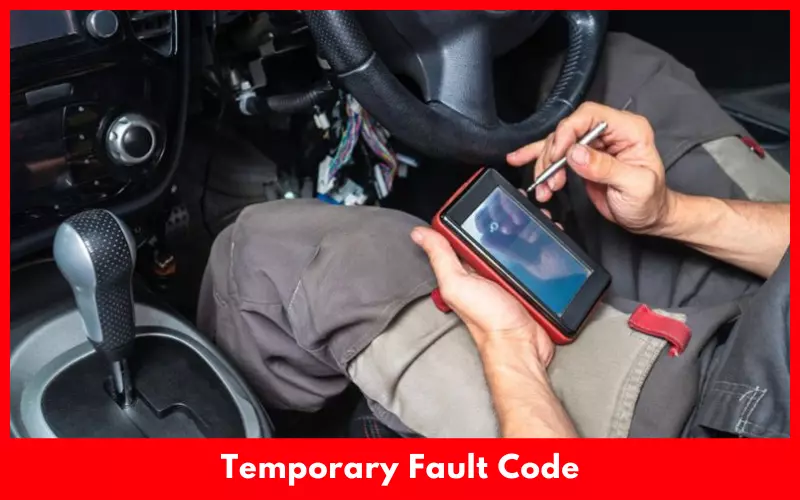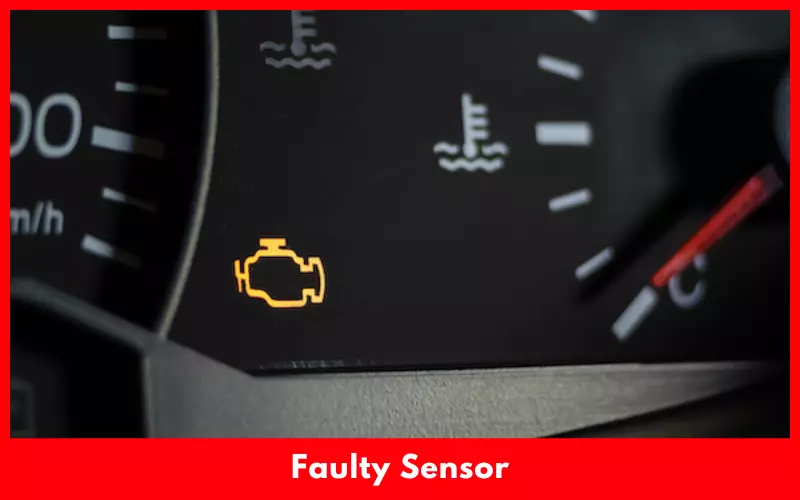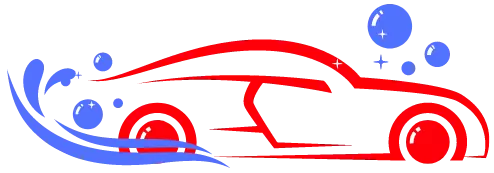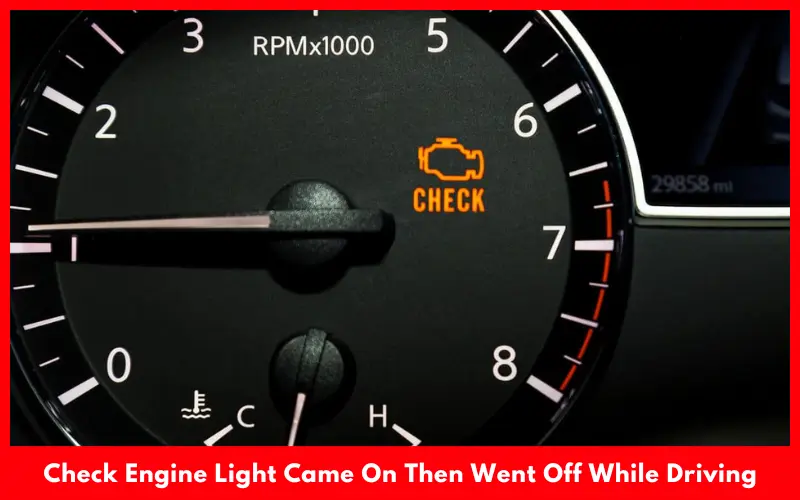A car’s check engine light illuminates whenever the computer detects any error codes or malfunction in the system. In minor cases, the computer resets the codes and deactivates the CEL while the major issue takes time and physical inspection.
If your car’s check engine light went off after a week itself, possibly it took time to solve the temporary fault code or intermittent problem.
Tightening the loose gas cap or restoring the faulty sensor can also deactivate the CEL after a week. However, it’s better to diagnose the car by an expert mechanic with an OBD-II scanner to prevent the CEL from triggering once again after weeks or months.
Article Summary
Why does My Car’s Check Engine Light Went off After a Week?
Check engine light may turn on due to minor problems like emissions-related issues that may clear themselves. So it isn’t uncommon to see a car’s CEL turn off itself after a week. However, there are some serious problems like faulty sensors, damaged bumps, or other components that can also trigger this issue. So if your car’s CEL keeps coming on and off, troubleshoot the vehicle keeping these reasons in mind:
1. Temporary Fault Code
The way the check engine light works is that when you use the car, its computer check for faults through the sensors. The ECU records a temporary fault code each time the sensor finds a fault. If the ECU records the same fault over time or during using the vehicle for five consecutive times, the computer makes the error code permanent and triggers the check engine light.

So the check engine light can go off itself if the fault code recorded isn’t permanent and not present the next time you use the vehicle. It can even come back after a week unless you fix the fault.
2. Miss Detected
According to the owner’s manual of the 1996 chevy cruze, the check engine light may come on due to causing miss detection.
If you can start the vehicle three times without miss detection, the CEL should turn off automatically. It can take a week to turn off the CEL mainly if you don’t use the car regularly.
Miss detection causes when the gas gauge needle touches the high side of the 5/8 tank mark during driving. To avoid this problem, refill the gas tank and drive the car normally or re-start the engine three times and wait a minute between each cycle.
3. Intermittent Problem
Your car’s check engine light may stay on for days and turn off after a week due to intermittent problems. If the car ECM sense some problems like a faulty variable valve control system, a misfire from the coil, or a leak in the gas cap, it can trigger such an issue. the CEL may also keep coming on and stay on solid until you solve the issue.

4. Loose Gas Cap
A loose gas cap may also turn on the check engine light which may deactivate if the cap tightens automatically. Attaching a new gas gap may also turn off the check engine light if it is activated due to a missing cap.

5. Faulty Sensor
A damaged sensor is also a potential source that can trigger a check engine light. if so, the CEL may turn off automatically after a week as the computer will reset it. If the problem is significant, you may need to replace the sensor to turn off the light. The electrical glitch can also cause CEL which may fix automatically after resolving the glitch.

6. Burn out Bulb
After starting a car, it checks the dash light and illuminates the check engine light briefly. If you don’t see this during starting the engine, the bulb may burn out. The check engine light may keep turning on and off until it is damaged completely.
Is it Normal if Check Engine Lights went off after a Week?
Turning off the check engine light after a week isn’t normal for a car. If the light illuminates for a few days and turns off by it, bring the car to a service center for free code reading. CEL automatically turning off doesn’t mean that the problem triggered by this light is fixed.
Some codes activate the check engine light until it cleared regardless of whether it is a history code or current code. Some logic code deactivates the CEL after three trips of not occurring any fault. So if your car’s CEL deactivates itself after a week, the problem is most possibly intermittent and it requires deep diagnosis by an expert technician.
If you keep driving the vehicle with this condition, it can trigger the limp mode. So you’ll have limited access to your car and won’t be able to drive faster or more efficiently.
What to do if Check Engine Lights went off after a Week?
If your car’s check engine light goes off after a week, most possibly the minor issue that triggers the light has resolved itself. It also saves you money that the mechanic may charge. But most of the time, bad sensors trigger the CEL. So it can once again trip the CEL in a few weeks to a month. Burnout light may also cause the same issue.

To fix the issue completely, take the vehicle to an auto repair shop to look for any hidden codes that may activate the check engine light. Hidden codes are usually issued for the vehicle’s engine that can be determined by ECU. These don’t turn on the check engine light unless certain criteria are met. Depending on the underlying source of the problem, the mechanic will use an OBD-II scanner to get codes like P0171-P0175 or P0420, and P0430 to act accordingly.
Also Read: Check Engine Light Flashing When Accelerating
FAQs
Why does my car’s Check engine light go off after a month?
Your car’s check engine light may go off after a month due to causing remedied. If your car’s converter is marginal and you often apply stop-and-go driving technique, it can make high demand for the converter. Hence your vehicle may activate the check engine light.
Why did my car’s Check engine light disappear after refueling?
If the loose gas cap or defect in the gas cap’s seal causes CEL, the light can disappear after refueling. To avoid the problem, use the right gas cap, and turn it a couple of times until it clicks. If the cap doesn’t make a clicking noise while tightening, you have to replace the cap.
Check engine light came on then went off while driving
If the CEL disappears while driving, your car’s computer reset the sensor. Vehicle’s internal computer checks and reset all the sensors automatically after around 10 to 20 cycles. The cycle means the phase where a driver turns on the car and turns it off again. For some vehicles, it may need to drive the vehicle for around 50 to 100 miles before it reset.
Final Words
If your car’s check engine light went off after a week, don’t get panic. Your car’s computer may reset the temporary faults code stored on the computer and deactivate the light. But if the light illuminates once again, bring the car to an auto repair shop to diagnose the vehicle.
Whether it is intermitted issue or hidden codes, the problem should be solved successfully. Leaving the problem untreated can cause safety hazards.

